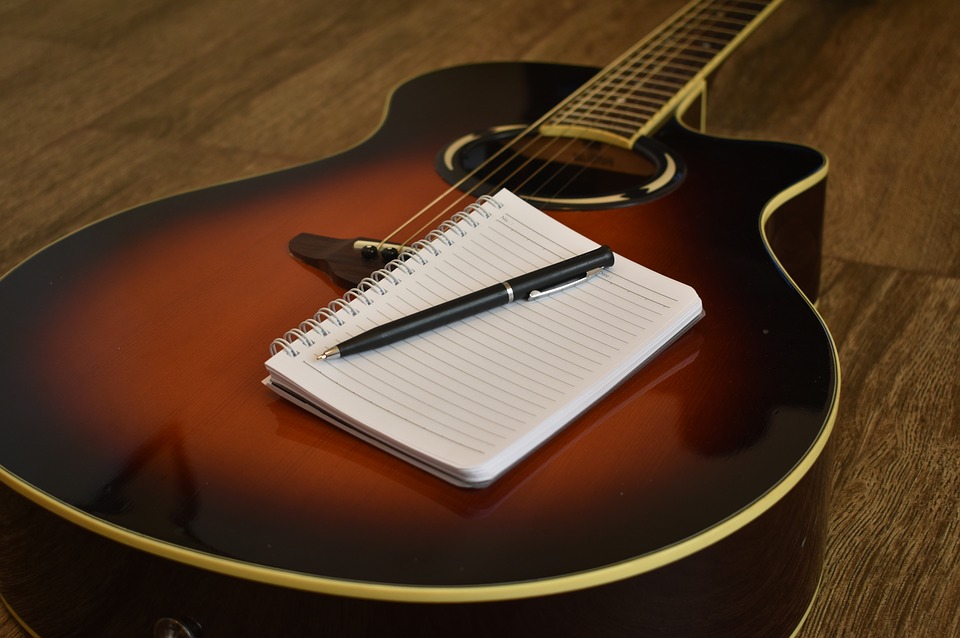When it comes to writing music, there’s surely no substitute for a bit of creativity and the keen desire to make something new. Everyone has a method all their own, but that doesn’t mean there aren’t observable parallels between creative processes, and some helpful places to start, though. We hope you might better understand your own process, or how to write a song, with the following tips!
How to Write a Song: Worthwhile Considerations
1. Decide Where to Start
Sometimes this is more of an organic discovery than a conscience decision, but figuring out the first piece of your song will help set you on your creative journey.
Do you begin with a chord progression or a melody? Maybe you have lyrics already written that you’d like to set to music, or perhaps there’s a drum pattern you want to build a song around.
Whatever the case may be, finding your starting point builds a solid creative foundation from which you can continue writing!
2. Take Advantage of Moments of Inspiration
How many of us are fully prepared to record whenever we have a moment of creativity? Some of the best ideas come while we’re at work, sitting in traffic, or simply handling our day-to-day lives. It isn’t always convenient, but taking advantage of spurts of inspiration is crucial!
If you’re not at home and set up to record your ideas, grab your phone and hum that melody into a voice memo. Whether physical or digital, keep a notepad handy to jot down lyrics or any other ideas you can flesh out later.
Of course, if you’re free to get in songwriting mode at home, don’t let fleeting moments of motivation pass!
3. Express Yourself Freely
This is one of the hardest things for any artist to master. We’re inevitably our own worst critics, and battling self-doubt is one of the biggest hindrances to creativity and motivation.
It’s important to sit down with the intention of self-expression rather than the goal of writing a hit record.
Improvise, make mistakes, embarrass yourself, and you’ll surely find gold flecks within the raw expression. Most importantly, you’ll allow yourself to grow as a confident artist if you first allow yourself to fail.
READ ALSO: What Is Time Stretching and When Would You Use It
READ ALSO: 7 Best Electronic Drum Sets for Your Home Studio
READ ALSO: What Is an ISRC Code
4. Write What You Know
When it comes time to write lyrics, personal experience is a fantastic place from which to draw. It sounds cliché, but it’s so obvious that it often eludes us altogether.
Some of the greatest timeless records were, of course, written about the artist’s own life. Heartbreak, loss, and moments of joy and triumph are universal experiences that inevitably lead to relatable, emotive lyrics.
5. Use Different Tools
Last year we spoke to Tim Randolph (Imagine Dragons) who shared some incredible tips for songwriting. For example, to keep his creative chops sharp, Tim works in more than one DAW.
Sequencing MIDI in a DAW like Logic or Ableton and then tracking audio in Pro Tools is a great way to keep things fresh and inspiring.
Have a guitar that’s collecting dust? Pick it up and see what comes out of it!
6. But, It Isn’t All About the Tools
As musicians, engineers, and gear nerds, chances are we’re always looking at the next acquisition. However, don’t let what you don’t have restrict your creativity.
If you have a computer and a DAW, everything needed to write a song is already in front of you. Ultimately, the most important tool you have is yourself, and you can surely make do with what you’ve got.
7. Commit to Creative Choices
Don’t overthink it! When we’re lucky, songs seemingly write themselves. If it sounds good, trust your creative intuition and refrain from over-embellishing or heavily editing a section or part.
Committing to choices early in the process might even lead to great ideas you never would have considered otherwise.
8. Work with Other Musicians
In the era of bedroom producers, most of us are holed up in our project studios alone. We might hit a speed bump in a song and shelf it as a “bad” idea. Learning how to write a song from other musicians is a valuable asset.
Bouncing ideas off of other musicians is arguably the best way to foster creativity and a productive songwriting session.
9. Have an Efficient Workspace
Let your workspace/home studio work for you. Having an organized, efficient set-up ensures you spend less time prepping for a session and more time actually writing music.
It’s also essential to being ready to go when those moments of inspiration strike!
10. Write Often!
By far the most important thing you can do as a songwriter is to do it as often as possible. The only way to improve at anything is to dedicate yourself to it, ideally making it a habitual practice.
Try to set some time aside each day, or at least several times a week, to work on music.
You may not write an entire piece in a half-hour chunk of free time, but you can accumulate enough material from short sessions to stitch something together over time.
Simply doing it is the optimal way to learn how to a write a song!
READ ALSO: AAC vs MP3 Files
READ ALSO: Best Studio Monitor Stands
READ ALSO: Best Guitar Loop Pedals for Any Budget
